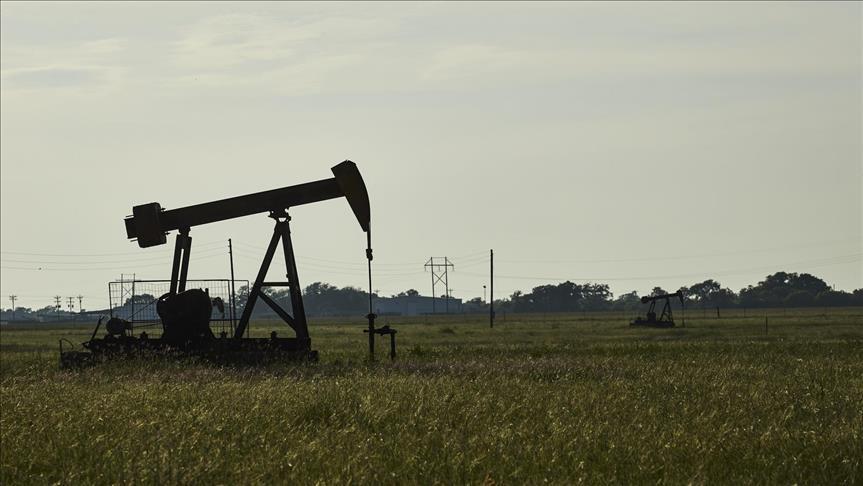The OPEC+ group may have to agree to step up output at their meeting next week to calm the global oil market, with prices fluctuating widely, and having exceeded $100 a barrel for the first time since 2014 from the greater risk of oil supply disruptions after the Russian attack on Ukraine.
The OPEC+ group will meet on March 2 to discuss the latest market developments and decide how much oil to pump in April.
The group reduced its daily crude oil production by approximately 10 million barrels in April 2020 due to the sharp decline in demand following the emergence of the COVID-19 pandemic. As global economies and oil demand started to recover, the group also began to ease these cuts in April 2021.
Although global economies and oil demand started to recover from the worst of the pandemic, supply lagged behind demand, leading to oil price rises. Despite calls from some countries led by the US for more output, the group did not relent and stuck to the existing production decision of 400,000 barrels per day (bpd).
According to the International Energy Agency (IEA), the group's production capacity is currently around 900,000 barrels behind monthly output targets.
The spare capacity that member countries can make available in case of any supply disruption has been declining since 2020.
The OPEC+ group currently has 5.1 million bpd of spare capacity, but in an emergency, only 2.2 million barrels of physical crude oil from Saudi Arabia and the United Arab Emirates (UAE) would be made available.
The group's lagging production levels relative to their stated monthly increases, combined with sharp draws in global inventories, resulted in further tightening in oil markets and, as a result, a supply gap.
- OPEC may intervene if situation in Ukraine threatens market stabilization
Carole Nakhle, chief executive officer of energy and geopolitical advice at research and training company Crystol Energy, said if tensions in Ukraine rise further, the OPEC+ group may increase production at their meeting next week.
"OPEC’s raison d’être, as they continuously remind us, is market stabilization. If they really believe that what's currently happening in Ukraine and Russia is threatening market stability and will cause a great burden on the global economy, and, therefore, potentially result in subsequent oil demand destruction, I see them going the extra mile and putting additional barrels on top of what they committed to put in the market of 400,000 barrels a day even though they have not been putting even that in," she said.
If the group strongly believes that the market is under threat, she said Saudi Arabia and, particularly, some producing countries of the Gulf Cooperation Council (GCC), which have significant spare capacity, would not hesitate in putting extra barrels into the market for the sake of market stability as they did in the past.
"It all depends on how the situation will unfold, and also on OPEC’s perception of the market. Today, we saw prices easing a little bit because the sanctions announced did not result in disruptions to energy supplies," she said.
Taking into account the widespread international condemnation and announcements of tougher sanctions on Moscow from the US, the UK, and EU, Nakhle warned of the uncertainties in Russia’s response to these sanctions.
"Though after the annexation of Crimea in 2014, Russia did not cut its supplies in retaliation against the sanctions. Currently, it's a pretty fluid situation, but I wouldn’t rule out entirely that OPEC+ cannot go the extra mile to calm the market down," she explained.
- Record price surges are possible if OPEC+ insists on current production level
Matt Stanley, director of the commodity brokerage firm Star Fuels, said all markets are now focused on what the next step will be in terms of prices.
Stanley said that after Russia's attack on Ukraine, Western countries were not expected to impose any energy-related sanctions on Moscow, although the general situation raises concerns in the market.
As Russia is the world’s second-biggest oil producer and provides between 30-40% of natural gas to Europe, he warned that "any sanctions on energy production are going to cause a huge spike, by how much is anyone's guess but it does seem that an aggressive headline is worth about $5 per barrel."
Stanley further cautioned that "oil is in real danger of hitting record highs if the current situation is maintained."
Refinitiv analyst Ehsan Ul-Haq maintains the current situation in Ukraine is putting extra pressure on OPEC+ to increase production.
He envisages that following assessments, Saudi Arabia, which typically adds supply in the event of a crisis, will do so along with other Middle Eastern producers "if there is a real disruption to Russian supplies or there are sanctions against Russian oil."
By Sibel Morrow
Anadolu Agency
energy@aa.com.tr


